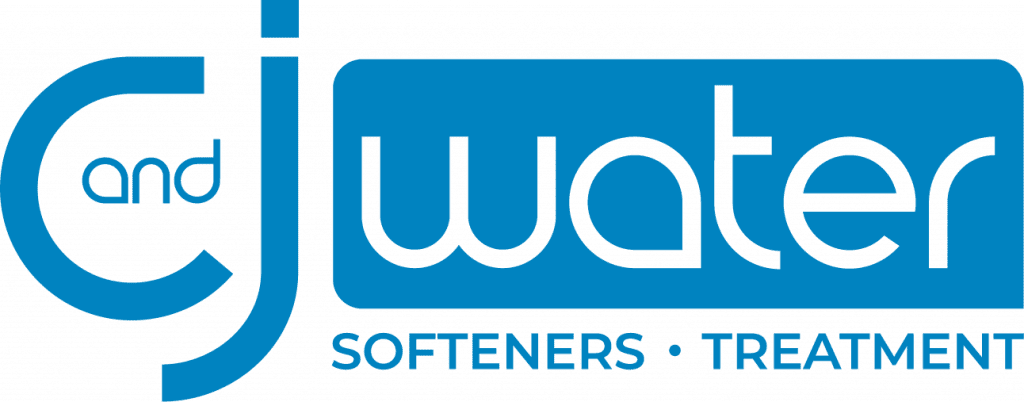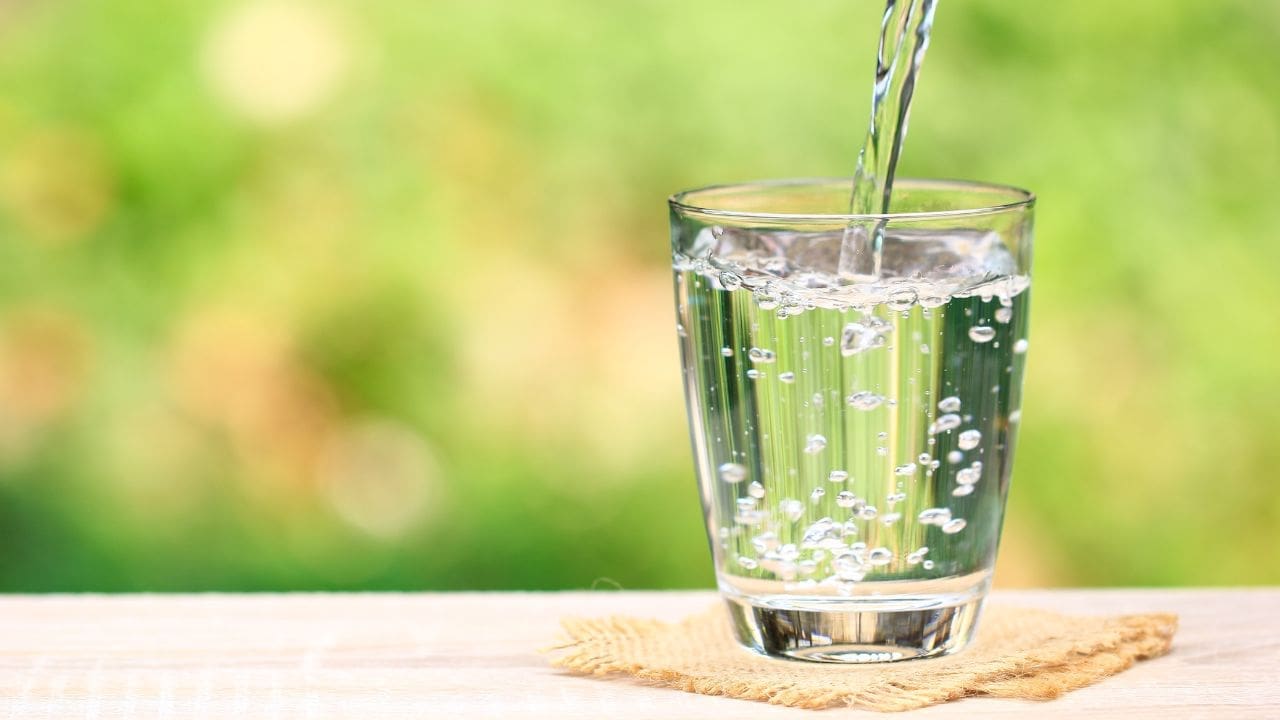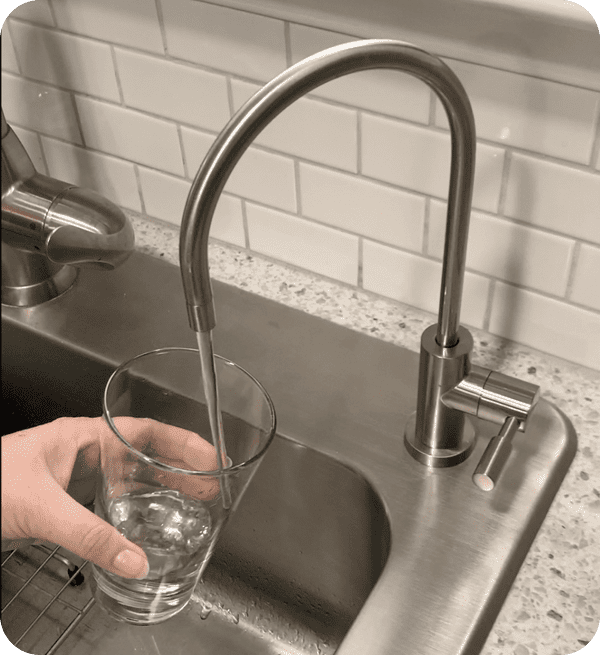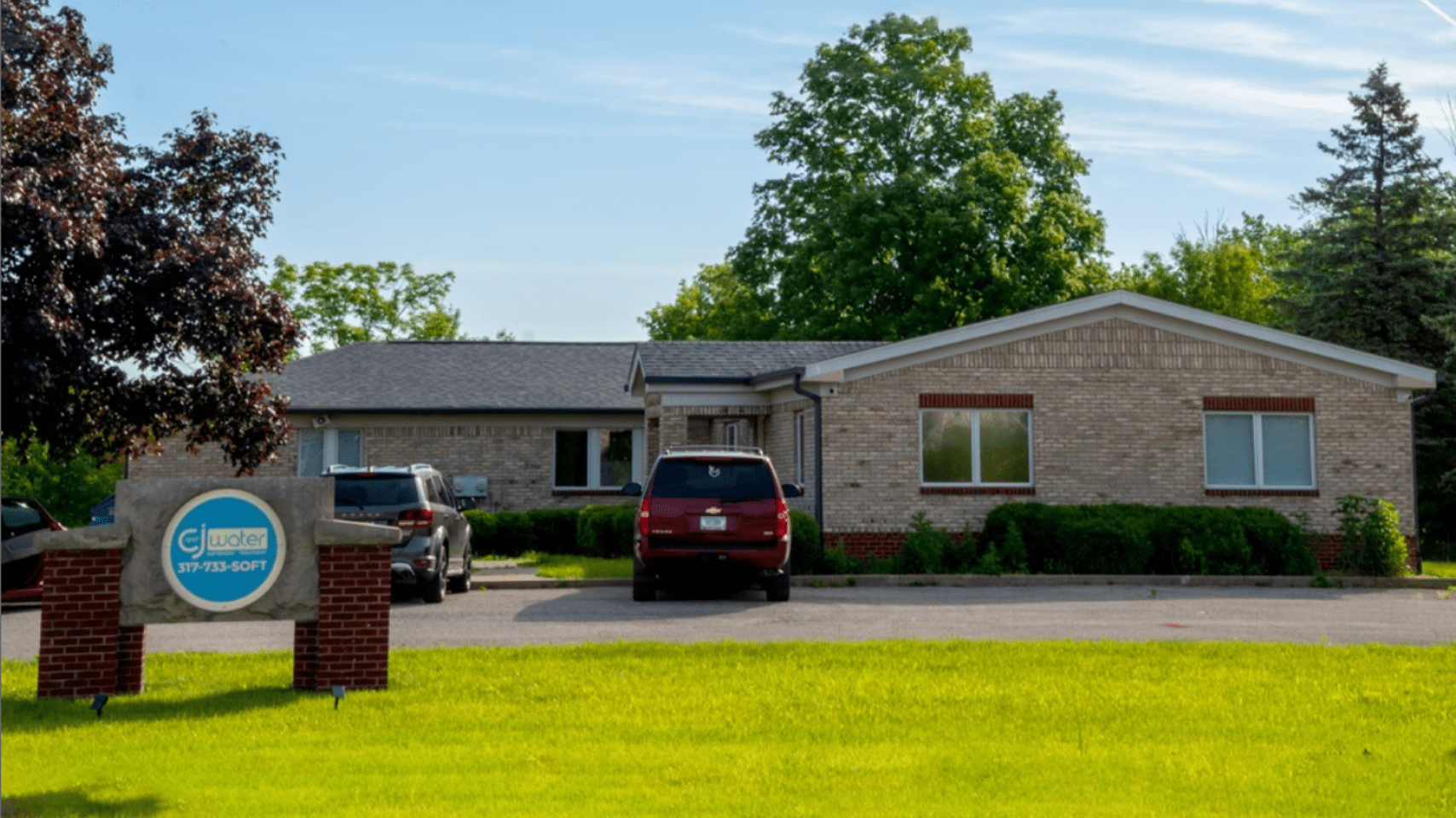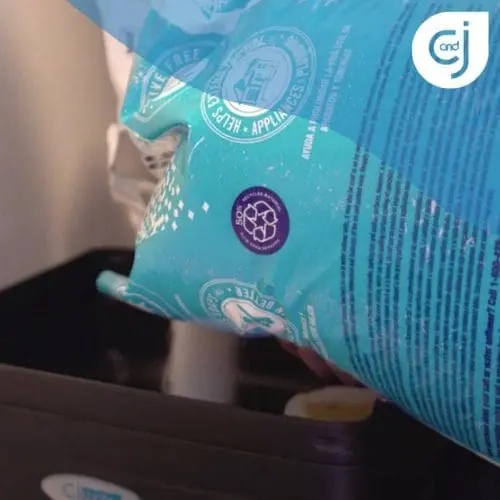Have you noticed that since you’ve had a water softener installed, your skin feels slippery or even slimy now? Or you must be careful entering the shower because the floor is very slippery? When you wash dishes by hand, do they tend to slide out of your hands in the water? This might beg the question, can water be too soft? Can your water softener be causing this? We’ll explain the difference between hard and soft water, how each can impact your skin, hair, and laundry—and what can be done about it!
What is hard water?
Hard water is measured as the concentration of calcium and magnesium in your water. Water with a high concentration of these minerals can make washing dishes difficult, stain your clothes, produce soap scum, and even clog pipes.
Hardness levels are expressed in grains per gallon or milligrams per liter (mg/L). The average hardness level for drinking water in the United States is about 150 mg/L. Below is a table that shows what ranges of total dissolved solids fall into each grain range:
- <1 Grain Per Gallon (gpg) – Soft
- 1-3 gpg – Moderately soft
- 4-6 gpg – Slightly hard
- 7-9 gpg – Moderately hard or hard
What is soft water?
If you have hard water at home, it has more minerals than soft water. Hard water comes from underground sources like limestone deposits and rocks made up of calcium carbonate. Soft water is water that has gone through the process of ion exchange. This process exchanges the hardness minerals naturally found in water—calcium and magnesium—and replaces them with non-hardness ions, typically sodium supplied by dissolved sodium chloride salt or brine.
 Sometimes homeowners complain about the new effects of soft water, but there are usually some reasons for this feeling. Often people use too much soap. One of the many advantages of a water softener is that you can and should use less soap for much better cleaning. This is one of the many ways a water softener will save your family money. You can often get by with half the soap you used before the water softener was installed. People not used to washing in softened water claim they feel a film on their skin. These are our skin’s natural oils—not excess sodium—and are what we should feel. While we may be used to checking if we are squeaky clean, the squeakiness is actually the remains of soap scum on our skin. A water softener removes these hard minerals and allows the soap and shampoo to lather properly.
Sometimes homeowners complain about the new effects of soft water, but there are usually some reasons for this feeling. Often people use too much soap. One of the many advantages of a water softener is that you can and should use less soap for much better cleaning. This is one of the many ways a water softener will save your family money. You can often get by with half the soap you used before the water softener was installed. People not used to washing in softened water claim they feel a film on their skin. These are our skin’s natural oils—not excess sodium—and are what we should feel. While we may be used to checking if we are squeaky clean, the squeakiness is actually the remains of soap scum on our skin. A water softener removes these hard minerals and allows the soap and shampoo to lather properly.
Also, make sure the hardness settings in the water softener are correct. Plumbers or DIYers often install water softeners without actually testing and programming the water softener. The water softener default setting is way too high for your family, and you end up with excessive sodium in your water after the regeneration, which causes slipperiness. Those incorrect settings also result in you using far more salt than you should, wasting your money. A water softener can add sodium to your water, so if you are on a restrictive diet, you’ll want to monitor your levels. The amount of sodium added to your water during the ion-exchange process depends very much on how hard the water in your area is. In most of Central Indiana, the amount of sodium added to the water is not unhealthy or dangerous to drink. However, if you live in an area with very hard water or are on a low-sodium diet, you can have a hard-water tap or reverse osmosis installed to negate this issue.
Furthermore, the calcium and magnesium deposits in hard water are inorganic minerals, which don’t provide the same benefits as obtaining minerals from food or supplements. The calcium and magnesium in hard water cannot be easily absorbed by the cells in your body. Plants can transform inorganic minerals into an organic state—which is why you need to eat your veggies—but drinking hard water won’t do much for adding minerals to your diet.
Americans typically have a diet high in sodium, but this is best reduced by targeting processed foods, not water. If you’re concerned about how much sodium you consume, begin by avoiding processed foods, canned foods, and snack foods. Keep the saltshaker off the table, and exclude foods with visible salts, such as pretzels, chips, and salted nuts.
Softened water helps to remove and neutralize the harmful effects of hard water, like limescale build-up around your home, and allows you to save money on cleaning products and water as you need to use less of both.
Let’s look at why you should stick with soft water in your home, despite the new “feel.”
How does water hardness impact my skin?
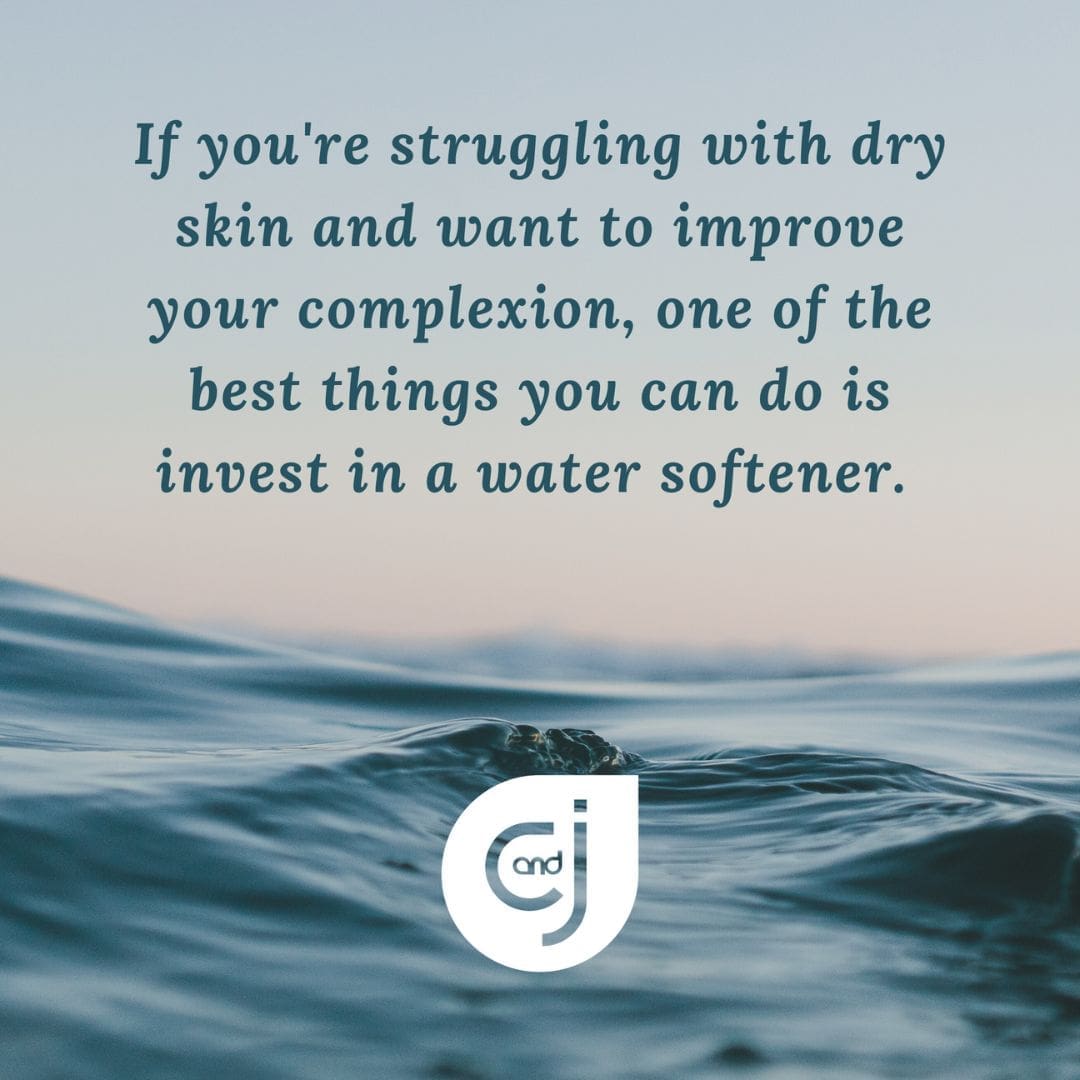 If you’re struggling with dry skin and want to improve your complexion, one of the best things you can do is invest in a water softener. Hard water is harsh on your skin, so once it’s softened, your skin can retain moisture more effectively. This will lead to better-hydrated cells and healthier-looking skin overall—and make a huge difference in how quickly your wrinkles fade!
If you’re struggling with dry skin and want to improve your complexion, one of the best things you can do is invest in a water softener. Hard water is harsh on your skin, so once it’s softened, your skin can retain moisture more effectively. This will lead to better-hydrated cells and healthier-looking skin overall—and make a huge difference in how quickly your wrinkles fade!
Hard water also dries out hair follicles which leads to premature aging. If you notice that your stretch marks are fading faster than normal or if they seem less noticeable after using a good moisturizer like coconut oil regularly, then it’s likely because hard water has been keeping them from healing as fast as they should have been able to heal naturally.
As far as what else might happen if there’s too much calcium in our tap water—some people have issues with acne when their tap water contains too much limestone or magnesium (both minerals found in large amounts within most home faucets). Others may experience dry scalp issues such as dandruff or dermatitis (when some sort of fungus grows on our scalps). While others may still see an increase in eczema outbreaks due to chemical reactions between certain elements present within these minerals, this could potentially lead directly back toward psoriasis outbreaks if left untreated over time.
How does water hardness impact my hair?
Even if you have a great hair care routine and wash your hair as often as possible, hard water can still make it feel dry and brittle. This has to do with the minerals in hard water that make it feel rough on your skin. The same thing happens to your hair when you wash it with hard water.
The minerals in hard water can cause frizziness by building up around the shafts of each strand of hair, making them stick out at odd angles instead of lying flat against one another. Because these minerals have a greater affinity for soap bubbles than oil or dirt particles, they attract suds like magnets—this is why lathering up to rinse away all traces of shampoo feels so much more satisfying when using soft water instead.
Another negative aspect of using hard water is that mineral buildup dries out the cuticles from within, making them rougher and more prone to breakage over time, contributing further toward dullness.
How does water hardness impact my laundry?
- Your laundry will get stiff and rough.
- Your clothes may smell bad.
- You’ll see white or yellow stains on your clothing.
- To make matters worse, hard water can leave mineral deposits on your washing machine and pipes, leading to costly repairs down the road.
How does water hardness impact my dishes?
Perhaps the biggest impact of hard water is difficulty in cleaning your dishes. The minerals can build up over time and make removing food residue from your dishes difficult, making them seem dirty even when they’re clean. The minerals also leave a film on the dishes’ surface that is difficult to remove with just soap and water; you may need to use special products for this purpose.
What can I do about my hard water?
If you want to reduce the amount of hard water in your home, there are a few things that can help:
- A water softener—Water softeners remove calcium and magnesium from the water supply as part of an ion-exchange process, but they must be maintained regularly to work properly.
- A filtration system—This can come in many forms—from pitchers with filters built right into them or whole-house systems—but they all have one thing in common—they’ll remove minerals from your water supply as it passes through them before getting pumped into faucets and showers around your house.
- Faucet attachments featuring activated carbon filters will also do the trick. Just fill up with tap water while bypassing any other plumbing connection points before pouring yourself a drink.
- Reverse Osmosis—If you are looking for a way to get the best quality drinking water and make things easier on yourself, then we suggest an RO system in your home.
Are you ready for soft water? If you are, give C and J Water a call and take advantage of our seasonal special offer! Our WQA specialists have the experience and education to help your family achieve quality water.
